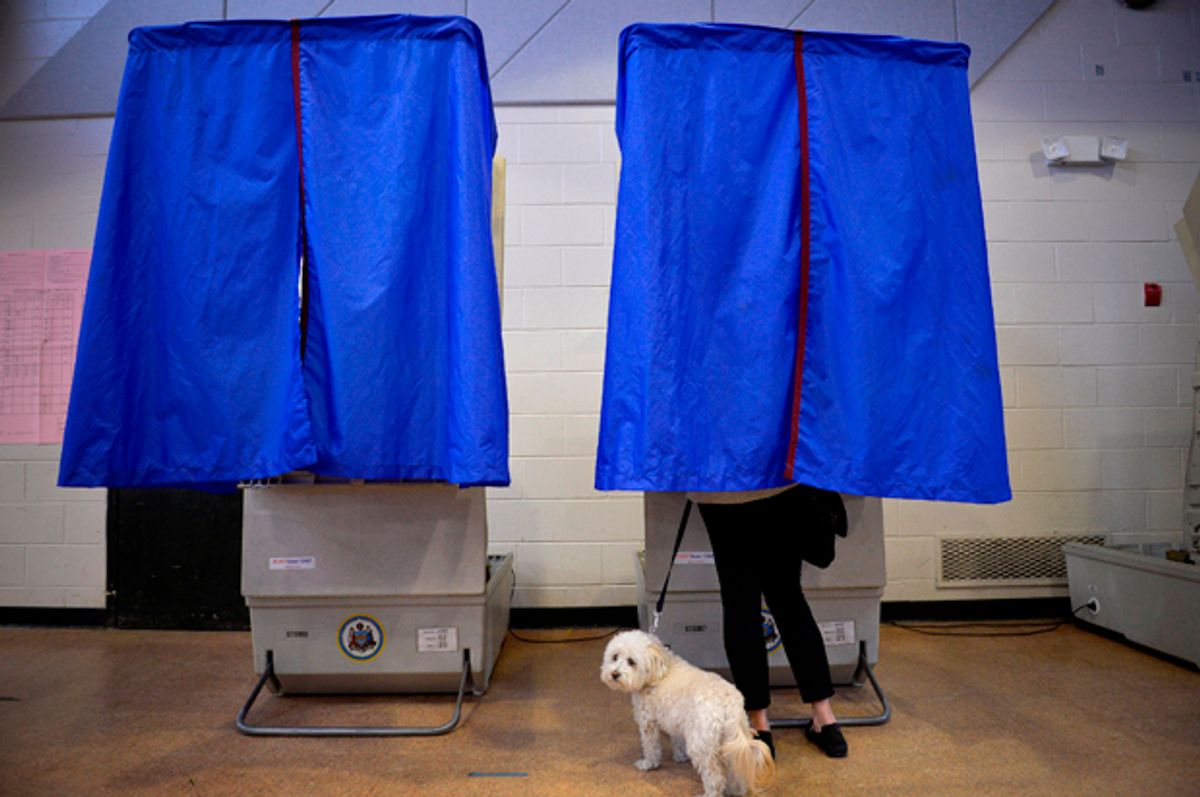This article originally appeared on AlterNet.
Over two million black Americans could not vote in this year's election, according to a recent study conducted by the Sentencing Project. One in 13 black Americans of voting age is disenfranchised due to a felony conviction, a rate four times greater than that of non-black people. As staggering as those numbers are, in four states — Florida, Kentucky, Tennessee and Virginia — more than one in five black Americans have had their voting rights stripped away.
In 1976, there were 1.12 million disenfranchised people in the United States due to felony convictions, but by 2016 that number skyrocketed to an estimated 6.1 million, propelled in large part by the drug war and other reprehensible policies that purposefully targeted black communities.
Visionary activist Kenneth Glasgow tells us what it felt like to walk into prison for the first time and be relegated to second class citizenship when his voting rights were taken away. After he was released from prison, Pastor Glasgow couldn’t vote for 3 years. Today, he is a leader in the voting rights movement and advocates for people who are formerly incarcerated.
"There’s only one thing that’s in America and in the United States that classifies you and declares you a citizen, that’s your right to vote. So if I get a felony that takes away my right to vote, so that also takes away my citizenship. So what is this war on drugs really about?”
Pastor Kenneth Glasgow is founder and president of The Ordinary People Society (TOPS), a faith-based organization in Dothan, Alabama that provides programs and services to people and their families that have been impacted by incarceration, drug addiction, poverty and homelessness. TOPS helps restore people holistically, and works with the most vulnerable and marginalized.
“Martin Luther King’s dream was for us to have our voting rights…civil rights and all of this, and there were some people left behind,” said Pastor Glasgow. “In the 13th Amendment it says that no man can be held in involuntary servitude or in slavery, except for what? A felony conviction.”
The election of Trump and sweeping Republican victories in the House and Senate lifted the thin veil that fully exposed the truth about America. Racism, misogyny, classism, xenophobia run rampant through our systems, and white supremacy is bolstered by voter suppression.
DPA media manager Tony Papa said this about the significance of voter restoration: “Exercising the right to vote should be an important part of an ex-prisoner's rehabilitation. It's an act that makes one feel whole again following years of losing those rights as part of a punishment for crimes committed. If through voting, individuals can become involved in the political process, they have a much better chance of fully integrating back into society.”
Felony disenfranchisement and the recent gutting of the Voting Rights Act, one of the most underreported factors in this election's outcome, will continue to silence those that are most vulnerable and most in need of justice — those that need their voices heard in our political process. We demand reform, and we demand it now, because 6 million discarded voters is simply unacceptable.
The Drug Policy Alliance works to end the drug war in cities and states all around the U.S. by partnering with organizations like TOPS. Produced in partnership with Luceo Images, Pastor Glasgow’s video is the sixth installment in a video series entitled "Voices from the Front Lines of the Drug War," which chronicling the people and organizations righting the worst wrongs of the drug war and creating new policies based in science, compassion, health and human rights.





Shares